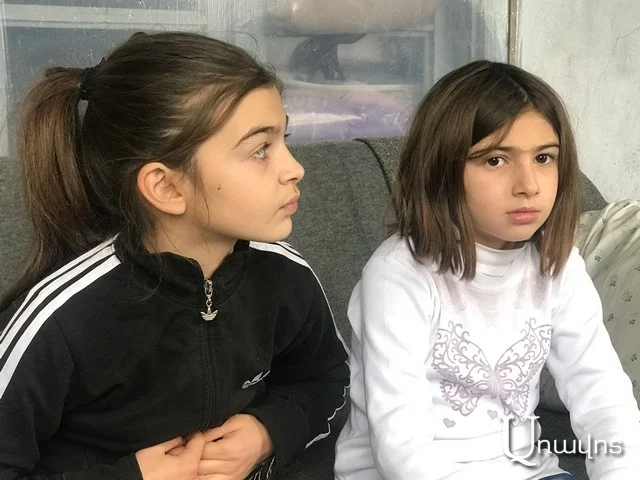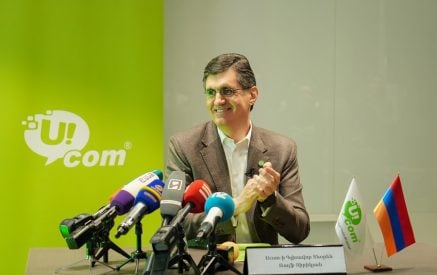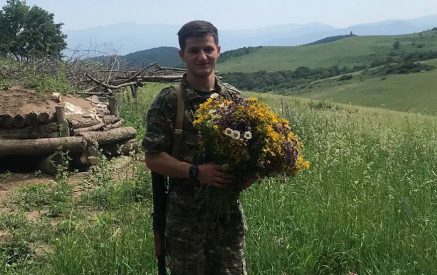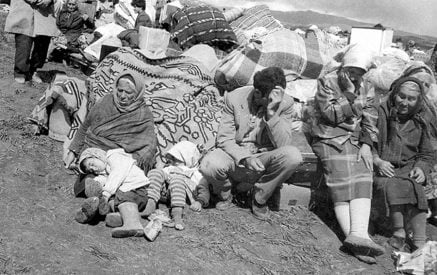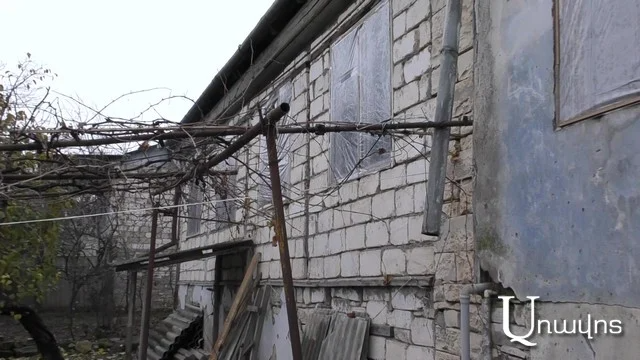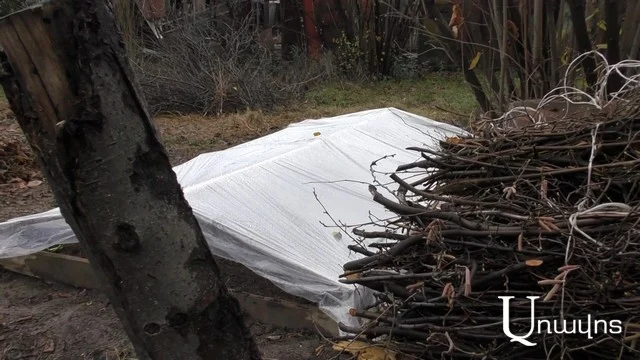“Dad said that the war began, so we needed to leave,” Angelina said when I asked her to talk about how she felt during the war. Angelina is ten years old. This was the first time that she saw a war. She had only seen war in films. Her father said that the April War was short, so children did not have to deal with stress and understand what happened. Angelina and her sister, Alina, do not understand why they had to sleep in the basement for days instead of their bed, why they had to leave their village, and why they couldn’t even bring their favorite toys with them.
Alina spent her birthday in the basement surrounded by the sound of bombs. She turned eight years old. Her father, Armen, said that they slaughtered a duck and held a small birthday party with their close relatives.
Read also
Armen Ohanyan’s family is from the Karmrakuch village of Hadrut. The family is now living in Martuni, Artsakh. They left the village during the worst days of the war thinking that they would soon return. However, Martuni is now their home.
The family is deeply upset because of their fate as displaced people, but they do not want to leave Artsakh whatsoever. Armen said that the sweetness of his native homeland does not exist anywhere else, even if his native Hadrut is no longer under Armenian control. The family was in Stepanavan during the war, but when they heard the news about the ceasefire, they immediately returned to Artsakh.
“Karmrakuch is two kilometers north of Hadrut,” Armen said about his village, and explained how they left their geographically unchallenged village.
“The gunshots were weak in the beginning. They were more so firing upon Hadrut. I took my children to the Tumi village, which seemed to be safer. Then I saw that the situation is getting worse. We returned to the village and I sent my wife and four children to Yerevan. I stayed behind. But I saw that the UAVs were firing upon the village and the village’s hills. We were unable to withstand it; this was a different type of war. I took my parents and grandmother out of the village. I was able to serve, and I was waiting to get called to serve from the commissariat. I slowly came back to Stepanakert. I stayed in my position in Shushi for around 13 days until they released me. We found out that the Russian troops came, and we will no longer maintain those positions.”
Armen said that the Azerbaijanis had already reached the entrance to the village when they left. The only thing that he saved from his 30-40 year belongings was his “07” car. “We lived well. We did not need anything. I had cows, chickens, and ducks, but I only saved my car. I was unable to remove anything else. The Turks had already reached the village. I somehow escaped using other roads to the village.”
Armen and his family are renting a home in Martuni. The state is paying for their rent. They somehow got used to their new conditions. The house’s windows do not have glass, but representatives from the administrative region came and measured the windows so they could install glass. They were also provided a bed, table, chairs, and a refrigerator.
There are many other families living in Martuni who were displaced from other towns. Martuni was one of the towns most affected by the war. They only have electricity several hours per day. The administrative region does not know how long these shutdowns will last. New stations are being built to ensure that settlements in Artsakh will have electricity for 24 hours.
There are many members of Armen’s family. His four children are minors. The family was given a heater so that the children can stay warm. Armen isn’t sitting around idly here; he built a small greenhouse so that he can grow greens. He also started working for a construction company. He is not complaining, and he will wait until he can return to Hadrut. “Even if they rob and burn our village, we will return.”
They receive contradictory news from their village. Some people say that the houses are still there, and the Turks are stealing from the homes. Others are saying that the Turks are not sparing anything, and they are destroying or burning everything in their paths. “But despite everything, I cannot leave my homeland and my home. I will return even if the land is all that remains.”
The children also received toys in Martuni, but they still want theirs. They went to Yerevan during the war and visited all the tourist attractions, but when they are asked where they want to live, they respond “our Karmrakuch” without hesitation.
Lusine Budaghyan


















































